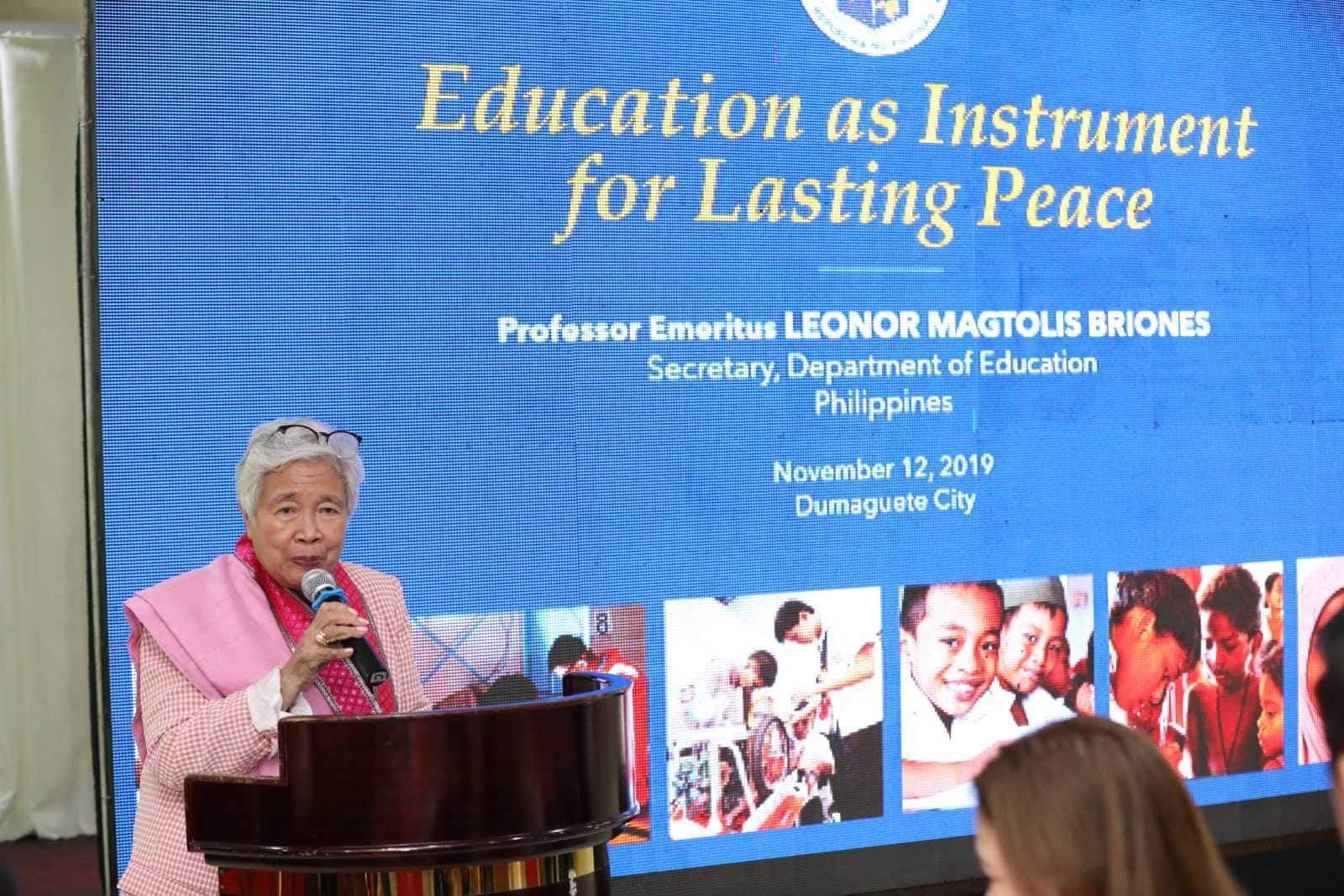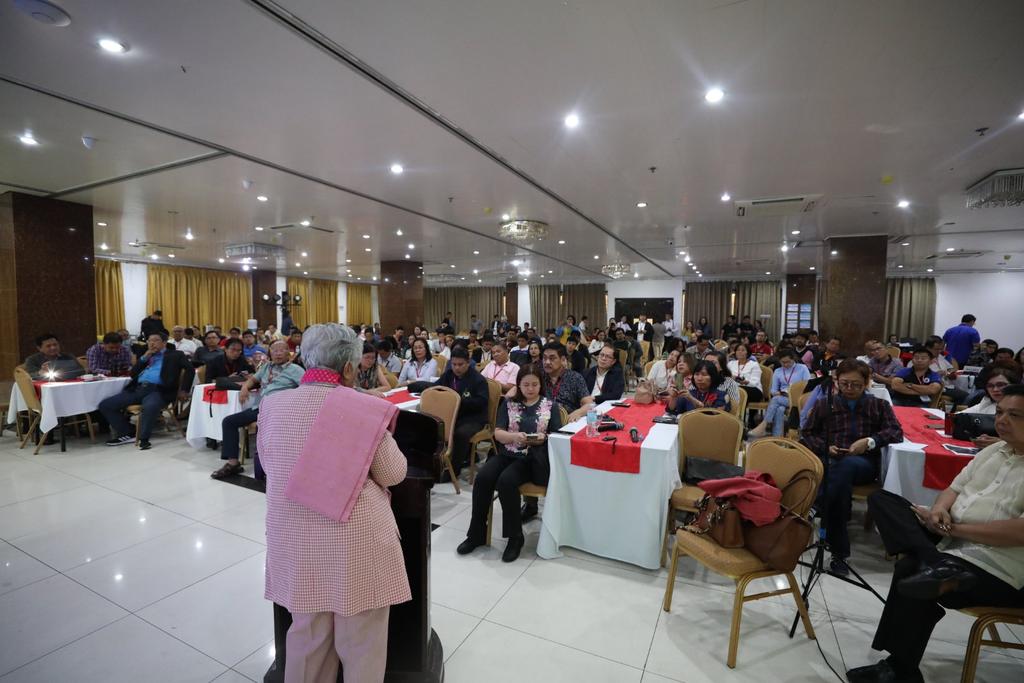DUMAGUETE CITY, November 20, 2019 – DepEd Secretary Leonor Magtolis Briones reiterated the Department’s commitment to ensuring educational continuity amid challenges; and to maintaining schools as zones of peace during the tripartite event – the Orientation-Workshop Learners and Schools as Zones of Peace (LSZOP), Conference for Youth Formation Coordinators and Volunteers for the Implementation of Last Mile School Program, and Conference on the Implementation of the Last Mile Schools in the Visayas on November 12-13 in Dumaguete City.
Addressing the approximately 1,000 participants composed of regional and division educational leaders, supervisors, school heads, youth formation coordinators and volunteers, and ALS Implementers, Briones emphasized that even in the midst of challenges education must continue.
Learners and Schools as Zones of Peace
Pursuant to Executive Order 70, the Department through DepEd Order 32, s2019 or National Policy Framework on Learners and Schools as Zones of Peace committed to vanguard safety of school and learners.
DepEd’s programs like the Alternative Learning System (ALS), and Last Mile School (LMS) have scaled success in terms of access to guarantee educational continuity despite incidences of armed conflicts.
“Whatever is happening in the country; whatever challenges we are facing, education must continue. Education cannot wait; our learners cannot wait. We continue with the process so we can give hope and continuity, and contribute to the normalization of activities in the country,” the Secretary recounted part of the speech on High-Level Social Development Goals Action Event on Education she presented at the United Nations in New York City on June 28, 2017.
Briones likewise emphasized that “for us to move forward”, there is a need to address the physical battle which pertains to challenges in program implementation, calamities, or social unrest; and the challenge of quality – the battle which is fought inside the classroom.
Last Mile School Program
Briones reported that “we have achieved so much in access.” However, she admitted that the Department is facing challenges on resources and facilities especially those schools in geographically isolated and disadvantaged and conflict-affected areas (GIDCA).
“It is true that we are having difficult times. I would like to appeal to each [and every one] of you to give attention to the Last Mile School, and other programs of the Department,” the Secretary said.
In her presentation, Briones expressed the Department’s resolve to prioritize the Last Mile School program to reach all Filipino learners nationwide whether they are in the mountains, hinterlands, or in the islands. The program complements the Department’s policy that no child is left behind.
Acknowledging these gaps and the aftermath of the earthquakes that hit some parts of Mindanao recently, Briones reiterated the call to expedite the delivery of the needed services to the affected schools, and the last mile schools.
“We can rise from the ruins of our homes, of our school buildings. We will rise like a phoenix,” she added.
Youth Formation
Parallel to the mandate of 1987 Constitution which guarantees the rights of the citizens to quality and accessible education, the Education Chief urged educational leaders and teachers to teach Filipino learners critical thinking and humanity.
Briones stressed the pivotal role of teachers in shaping the learners who “can deal with the world” and “are good citizens of the country.”
“It is our task to produce young people who are prepared to deal with the world. It is our task to prepare them for the real world. It is our task to prepare them how to be a Filipino,” the Secretary said.
She likewise emphasized that one of the biggest challenges in education is the challenge of Generation Z. While dealing with this challenge, the Secretary reminded the teachers to observe proper online decorum and responsible netizenship, and to uphold the dignity of the teaching profession.
“Teachers are near-perfect models of what a good citizen should be. We should be mindful of what we post on social media – Facebook and Twitter, for example. Teachers must be teachers of confidence, faith, and honesty. Never denigrate your profession because what you do shapes our learners,” Briones explained.
As the Department takes a pivot from access to quality, the Secretary likewise stressed the need to complement the teachings on analytics, data, and theories with the teaching of good moral values and humanity.
“We teach them [our learners] to be human and humane, and at the same time to be good citizens of this country. Education [after all] is our most important legacy,” Briones concluded.
END





